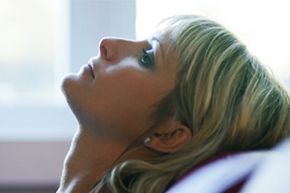In the 1950s and early 1960s, TV stay-at-home moms on sitcoms like "Leave it to Beaver," "Father Knows Best" and "The Donna Reed Show" were cheerful, maternal goddesses with an easy mastery over home economics. As societal norms shifted, however, popular culture began to cast a suspicious eye on these happy homemakers. Soon, such women were considered more like "The Stepford Wives" than truly content, well-rounded women.
These fictionalized extremes seem silly to us now, but real-world mindsets still add to the confusion. On one hand, you'll find thousands of Pinterest boards and mommy blogs devoted to romanticized domesticity. On the other, you'll see numerous examples of accomplished women striving to be multi-tasking masters of the universe.
Advertisement
Lost in the shuffle of what moms want to be or feel they are expected to be is a much simpler question: What makes them happy?
For many years, the idea that stay-at-home moms might be either happy or depressed was assumed to be a subjective experience — that those who wanted to leave the workforce would be more content than those who did so in a reluctant or obligatory fashion. To an extent, this is true — and the same can also be said for working moms. It's also true that a person's basic happiness isn't dependent on his or her circumstances.
Despite psychological generalizations, however, we are learning a little more about the mental lives of mothers who are full-time caregivers. A 2012 Gallup survey of 60,000 women found that stay-at-home moms were more prone to negative emotions like depression and anger [source:Flam]. The survey also found that 28 percent of stay-at-home moms had clinically diagnosed depression, versus only 17 percent of working moms [source:Flam].
It's suspected that social isolation and reduced professional development are contributing factors to depression in moms who aren't in the workforce. That means there are remedies for stay-at-home moms (like increased outings and intellectual pursuits) for the low moods often associated with抚养孩子full-time.
In fact, other surveys of moms have found that the majority of women with minor children would prefer to work part time to staying at home full time or working full time [source:Wang]. This suggests that, for many mothers, the key to happiness and good mental health might be somewhere in the middle of antiquated maternal ideals and high modern expectations.
Advertisement






